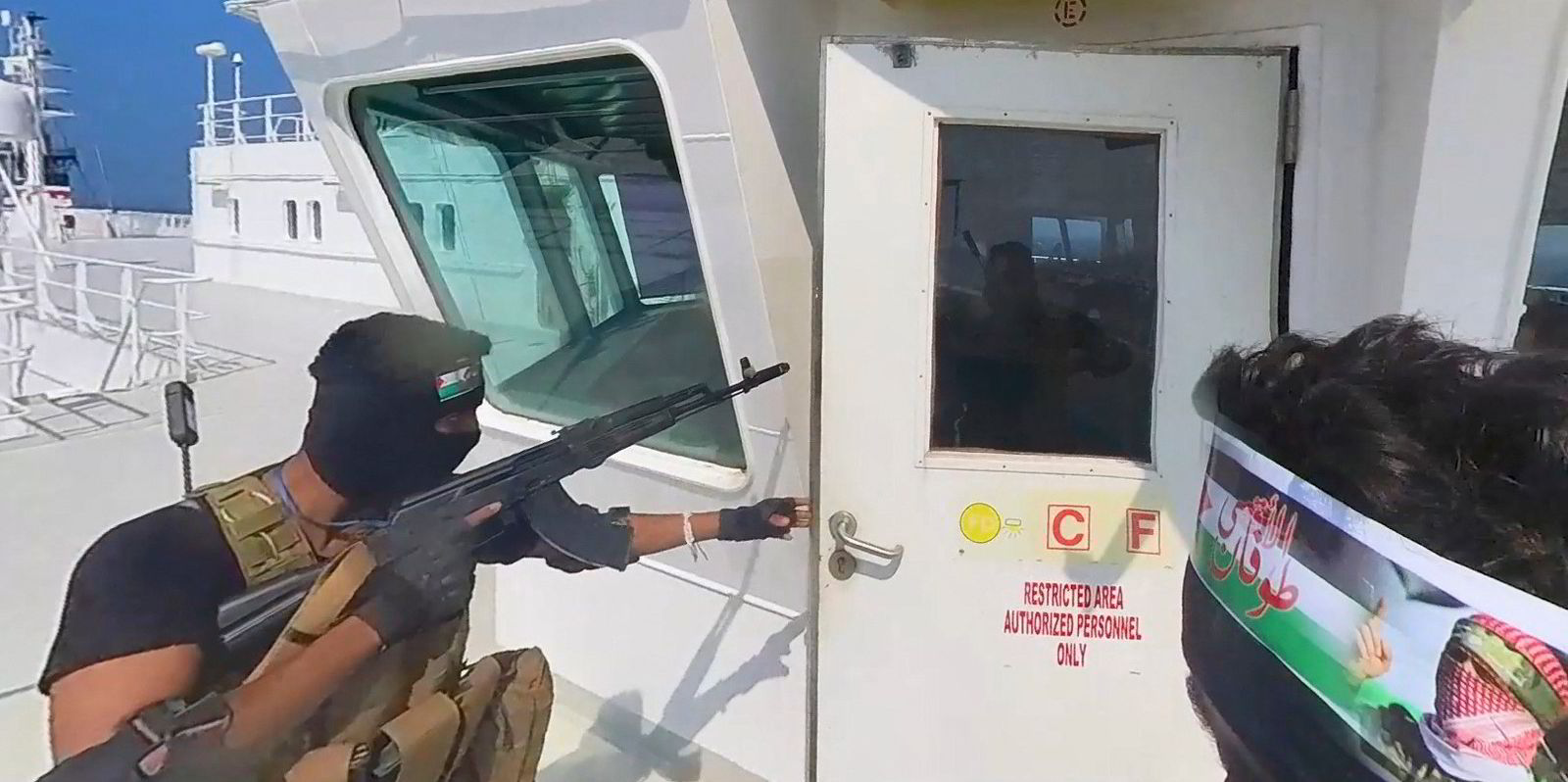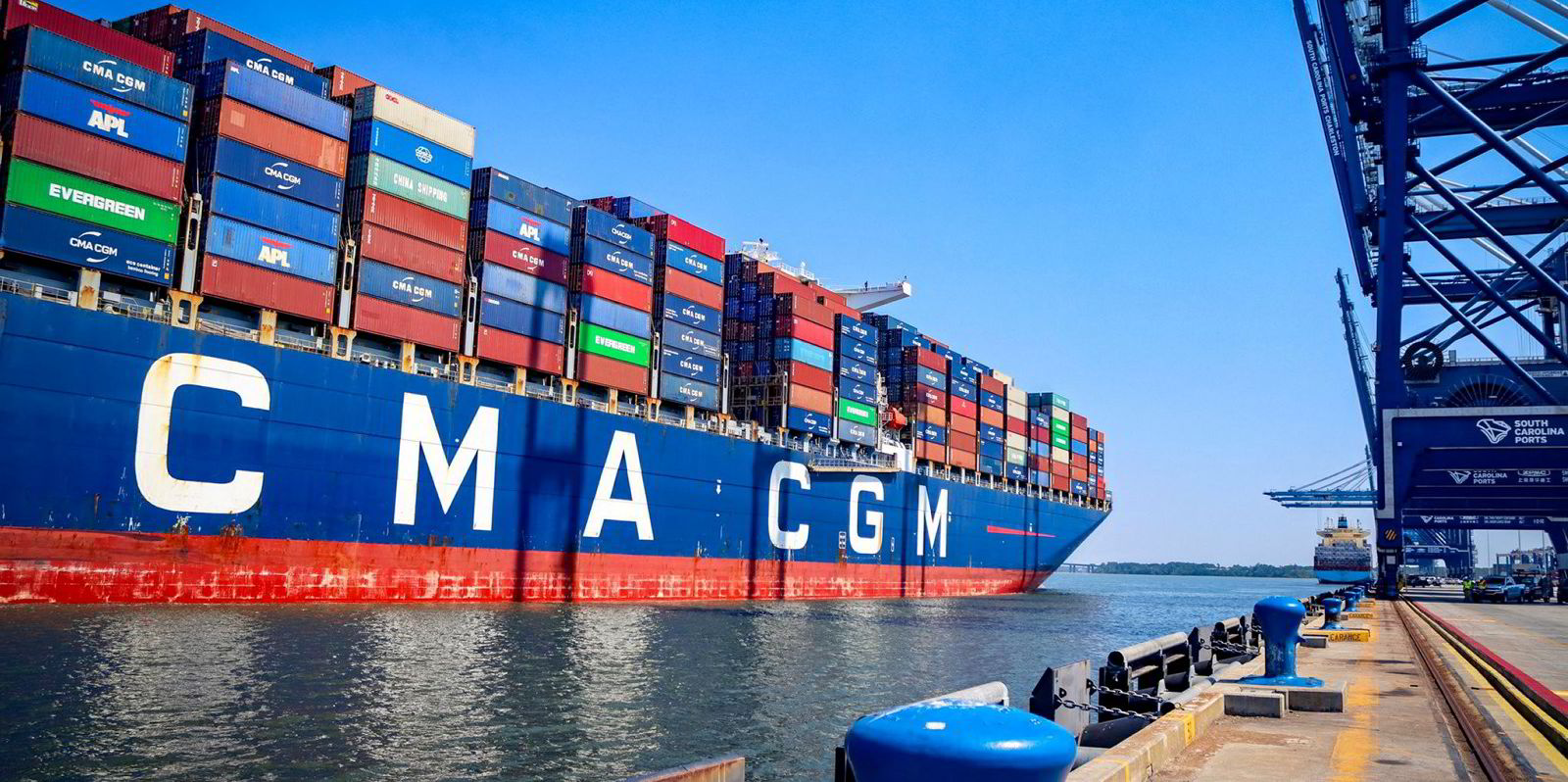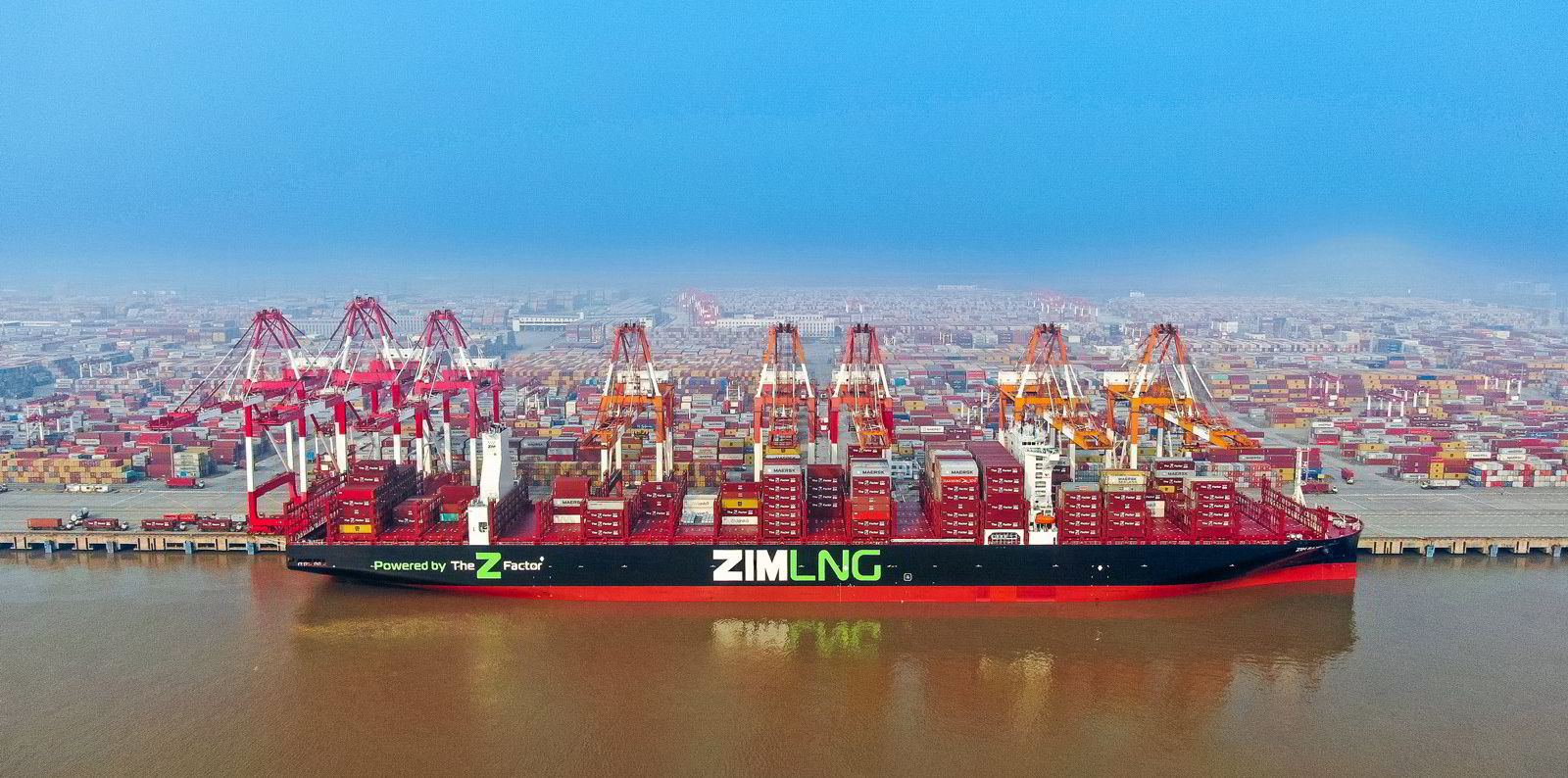War risk underwriters are continuing to upgrade the risk profile of Israeli-controlled ships following the most recent Red Sea attacks.
As TradeWinds reported last week, the sophisticated nature of the helicopter-assisted hijacking of the 5,100-ceu car carrier Galaxy Leader (built 2002) had alarmed the insurance market into more than doubling rates for some Israeli-linked ships.
The use of a helicopter suggested the involvement of Iran.
A drone attack on the Eastern Pacific Shipping-controlled 15,300-teu container ship CMA CGM Symi (built 2022) has added to the concerns.
Insurance brokers suggested that the recent attempted hijacking of Zodiac Maritime’s 20,000-dwt tanker Central Park (built 2015) in the southern Red Sea is also being viewed in the market as a part of the Houthi-led attacks on Israeli shipping — despite assurances from the Pentagon that it was a Somali pirate attack.
Initial reports suggested that the hijackers had ordered the ship to divert to Hodeidah in Yemen rather than Somalia.
Just how much underwriters raise rates will depend on the individual risk profile of the owners involved, said one marine insurance broker.
Final war risk quotes are often derived through a series of no claims and other discounts. On top of the higher rates, such discounts “may no longer be offered to Israeli-linked ships”, suggested one broker.
Higher war risk rates will not affect the owner directly. The Red Sea region is already a designated additional premium area under war risk policies. Any additional premium applied by underwriters in that region is usually paid by the charterer.
Zim has already started to divert some of its ships out of the Red Sea region for safety reasons. Diversion away from the Red Sea is likely to depend on discussions between the charterer and owner.
Pentagon claim
If the Pentagon’s claim that the attack on the Central Park was an act of Somali piracy proves correct, it could widen the impact of war risk and kidnap and ransom insurance rate rises beyond Israeli-linked ships.
There has not been a successful piracy attack off Somalia for more than a decade.
Last year, associations including the International Chamber of Shipping, Intercargo, Intertanko, Bimco, the Oil Companies International Marine Forum and the International Marine Contractors Association said they would no longer recognise the Indian Ocean High Risk Area.
The decision came after joint industry efforts had largely eradicated Somali piracy over the past 15 years.
Insurers have not been applying higher rates in the Indian Ocean off Somalia.
The key factors in defeating Somali piracy were industry best management practices and the adoption of onboard security teams to harden ships against attack.
However, the attack on the Central Park appears to have created confusion over piracy and terrorist-related attacks.
In the event of an attack on ships in the Red Sea, maritime security expert Ambrey Analytics advised private security firms “not to escalate” rules of force.
“They are advised to enhance best management practices by improvising measures, running drills and supporting with lookouts and advice to the bridge team,” Ambrey said.





